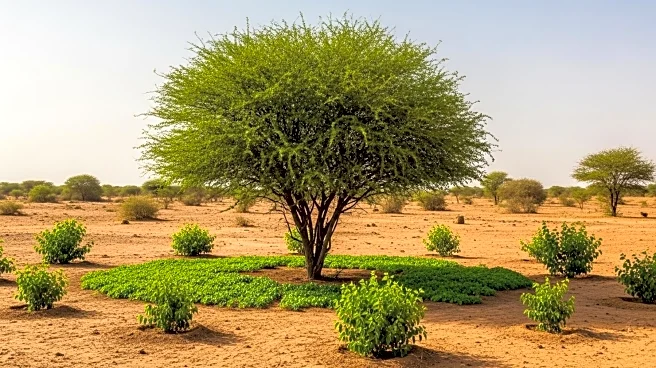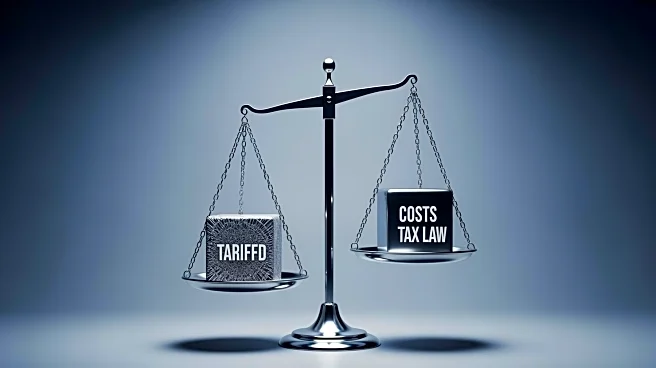What's Happening?
A recent study has focused on the Great Green Wall (GGW) region in the Sahel, highlighting the impact of human contributions to land restoration efforts. The GGW initiative, involving 11 countries such as Ethiopia, Chad, and Niger, aims to combat land degradation and desertification exacerbated by climate change. The study found that human efforts in restoration significantly outweigh degradation, despite challenges posed by rising CO2 levels and climate change. The research utilized various datasets to analyze factors like temperature, precipitation, and land cover changes, revealing that rising CO2 is a dominant factor affecting land productivity dynamics. The study employed advanced methodologies to assess land productivity changes from 2015 to 2022, categorizing areas into different productivity classes and evaluating the influence of climate and human activities.
Why It's Important?
The findings underscore the critical role of human intervention in mitigating land degradation in vulnerable regions like the Sahel. As climate change continues to impact land productivity, the study highlights the importance of restoration efforts in achieving sustainable development goals. The GGW initiative serves as a model for other regions facing similar challenges, demonstrating that proactive human contributions can significantly counteract environmental degradation. This research provides valuable insights for policymakers and environmental organizations, emphasizing the need for continued investment in restoration projects to combat the adverse effects of climate change on land productivity.
What's Next?
The study suggests that ongoing monitoring and adaptation of restoration strategies are essential to address the evolving impacts of climate change. Future efforts may focus on enhancing the effectiveness of restoration projects by integrating new technologies and methodologies. Policymakers and environmental groups are likely to use these findings to advocate for increased funding and support for restoration initiatives. Additionally, the study may prompt further research into the specific contributions of different factors, such as CO2 levels and land use changes, to land productivity dynamics.
Beyond the Headlines
The research highlights the ethical and cultural dimensions of land restoration, as it involves collaboration among multiple countries and communities. The GGW initiative not only addresses environmental challenges but also fosters regional cooperation and cultural exchange. Long-term shifts in land management practices could emerge from this study, influencing global approaches to combating desertification and promoting sustainable land use.









